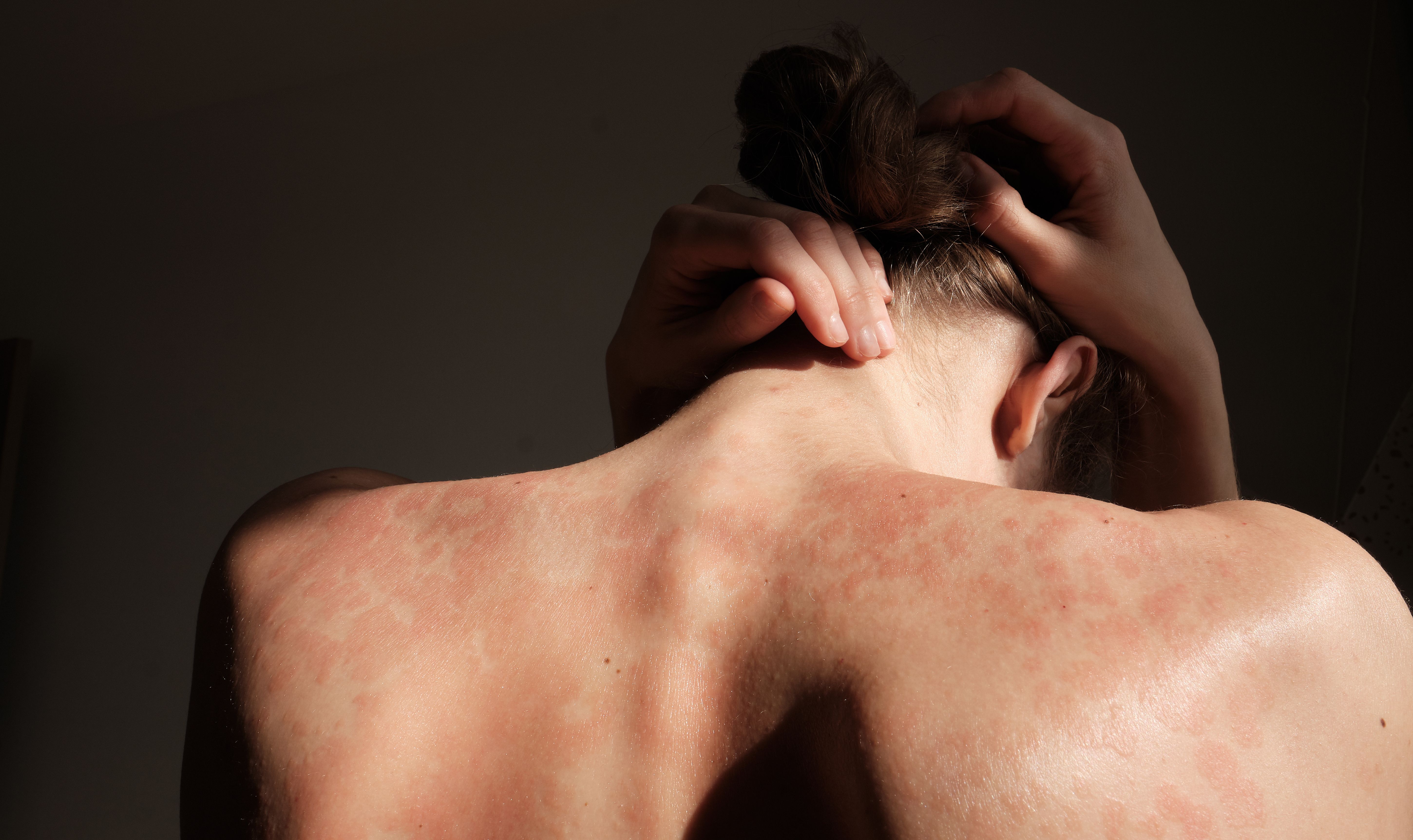- Case-Based Roundtable
- General Dermatology
- Eczema
- Chronic Hand Eczema
- Alopecia
- Aesthetics
- Vitiligo
- COVID-19
- Actinic Keratosis
- Precision Medicine and Biologics
- Rare Disease
- Wound Care
- Rosacea
- Psoriasis
- Psoriatic Arthritis
- Atopic Dermatitis
- Melasma
- NP and PA
- Skin Cancer
- Hidradenitis Suppurativa
- Drug Watch
- Pigmentary Disorders
- Acne
- Pediatric Dermatology
- Practice Management
- Prurigo Nodularis
- Buy-and-Bill
News
Article
Validation of Improved QoL Assessment for Moderate Psoriasis
Author(s):
Researchers found the assessment accounted for those with moderate impact, allowing clinicians to create improved treatment plans for patients.
Image Credit: © stockmaster - stock.adobe.com

In an effort to improve the accuracy of the assessment of the Dermatology Life Quality Index score (DLQI) for patients with psoriasis, a recent study proposed and validated a new scoring method, the DLQI-NS. This assessment includes the moderate impact option in the self-assessment of each item in patients with psoriasis, allowing clinicians and caregivers to better understand the impact the disease has on patients’ quality of life (QoL). Researchers found the new assessment was “superior” when compared to the DLQI, leading to 17 additional patients achieving severe disease status.1
Background
A total of 425 patients treated at the Department of Dermatovenereology, West China Hospital of Sichuan University, between May 2021 and December 2022 were included in the study. Each completed the DLQI, DLQI-NS, and skindex-16, and their clinical severity of psoriasis was assessed using the Psoriasis Area and Severity Index (PASI)score and the Body Surface Area (BSA) score.The Numeric Rating Scale (NRS) was used to assess pruritus.
The DLQI, designed to assess health-related QoL (HRQoL) in patients with skin disease, is a 10-item questionnaire scoring QoL impairment due to condition. Four score options are available for each item: ‘not at all’ or ‘not relevant’, 0; ‘a little’, 1; ‘a lot’, 2; and ‘very much’, 3. These answers are then tallied together to give a total score of 0 to 30, with higher scores indicating greater disability experienced by patients. The new scoring system, DLQI-NS, adds a moderate effect option, making each item into a 5-point scale (‘not at all’ or ‘not relevant”’=0, ‘a little’ =1, ‘moderate’ =2, ‘a lot’ = 3 and ‘very much’ = 4) and yielding a total score from 0 to 40.
Outcome
The study reported the final mean DLQI-NS and DLQI scores as being 13.19 ± 8.02 and 11.24 ± 6.06 respectively, meaning the DLQI-NS had slightly raised the score compared to the original DLQI. According to the criteria for clinical classification of psoriasis severity,2 the study revealed the DLQI-NS allowed 17 more patients (4%) to achieve severe disease status (PASI > 10 or BSA > 10% and DLQI > 10). Furthermore, researchers analyzed that 14.4% to 32.5% of patients chose moderate impact among the 10 items of the DLQI-NS, indicating that disease had a moderate impact on all aspects of patients’ lives in a large proportion of the cohort.
Researchers assessed the validity of both scales using Spearman’s rank order correlations with the BSA, PASI, and NRS scores.They found both the DLQI-NS and DLQI showed significant moderate correlations with the BSA (0.51 vs. 0.50) and PASI (0.47 vs. 0.46). “It is obvious that the DLQI-NS correlated slightly better with the BSA and PASI (0.51 vs. 0.47),” researchers wrote. The study reported that neither questionnaire correlated with the NRS score (0.00 vs. 0.02). As for criterion validity, the DLQI-NS, DLQI total score, and skindex-16 were strongly correlated, with correlation coefficients of 0.89 and 0.84.
Conclusion
Considering the results of this study, researchers stated that the DLQI-NS is an “effective self-assessment tool for assessing skin disease quality of life.” They claimed that the validity and reliability of the DLQI-NS were superior to those of the DLQI and can lead to more conducive treatment plans for patients. Given the small sample size of this cohort, the researchers encouraged physicians to further test the clinical application of this assessment.
References
- Zou Q, Luo Y, Hao D, et al. Validation and application of the Dermatology Life Quality Index score, a modification of the DLQI score, in psoriasis patients. J Health Popul Nutr. 2024;43(1):92. Published 2024 Jun 22. doi:10.1186/s41043-024-00587-3
- Gisondi P, Fargnoli MC, Amerio P, et al. Italian adaptation of EuroGuiDerm guideline on the systemic treatment of chronic plaque psoriasis. Ital J Dermatol Venerol. 2022;157(Suppl. 1 to No. 1):1-78. doi:10.23736/S2784-8671.21.07132-2





